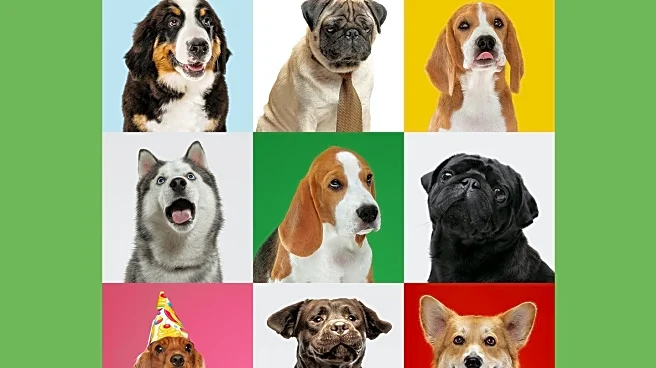What is the story about?
What's Happening?
A letter published in New Scientist discusses the idea that dog domestication may have been a result of natural selection rather than human intervention. The letter, written by Jens Jensenius from Odense, Denmark, suggests that mutations and the selection of the fittest could have played a role in the domestication process. Jensenius shares an anecdote about a mink farm where a mink displayed tameness, leading to its release from captivity. This behavior was not unique, as similar occurrences have been reported by other mink farmers.
Why It's Important?
The concept of natural selection in domestication challenges traditional views that emphasize human-driven processes. If natural selection played a significant role, it could reshape understanding of domestication and evolution. This perspective may influence future research in genetics and animal behavior, potentially impacting conservation strategies and breeding practices.
Beyond the Headlines
The idea of natural selection in domestication raises ethical questions about human intervention in animal breeding. It suggests a more passive role for humans, allowing nature to dictate the course of domestication. This could lead to discussions on the ethical treatment of animals and the preservation of natural evolutionary processes.
















